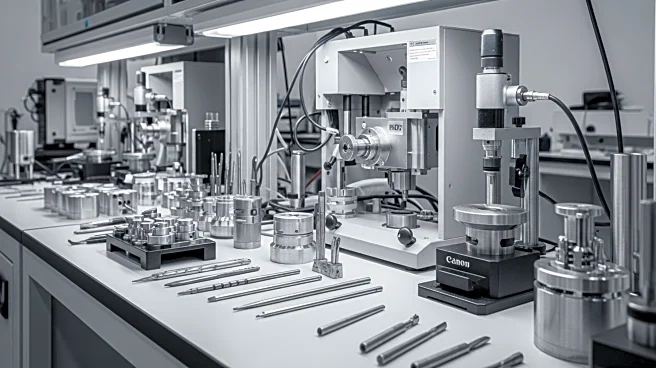What's Happening?
Locksley Resources Ltd has announced successful results from initial metallurgical testwork on samples from the Desert Antimony Mine Prospect. The testwork, conducted by SGS Australia and Independent Metallurgical Operations Pty Ltd, focused on a 23.1 kg composite sample with a 9.6% antimony grade. The tests demonstrated effective recovery of stibnite, the antimony-hosting mineral, producing a concentrate exceeding 30% antimony in five out of six tests. The results indicate potential for a high-grade concentrate suitable for conventional pyrometallurgical processing, aligning with U.S. government priorities for domestic critical mineral supply security.
Why It's Important?
The successful testwork is a significant step towards establishing a domestic antimony supply chain in the U.S., reducing reliance on foreign sources for this critical mineral. Antimony is essential for various applications, including flame retardants and electronics. Locksley's progress supports U.S. efforts to secure onshore mineral supplies, enhancing national security and economic stability. The development could benefit industries reliant on antimony, potentially lowering costs and ensuring a stable supply.
What's Next?
Locksley Resources plans further testwork to improve stibnite recovery and concentrate grade, aiming for a final concentrate grade of over 50% antimony. The company will conduct mineralogical testwork to understand ore characteristics and explore options for pilot testing to produce antimony metal ingot and other derivatives. These steps are crucial for advancing the Mojave Project and achieving a fully domestic antimony supply chain.
Beyond the Headlines
The advancement of a domestic antimony supply chain could have broader implications for U.S. industrial policy, potentially influencing trade dynamics and fostering innovation in mineral processing technologies. It may also prompt discussions on environmental and ethical considerations in mining practices.









